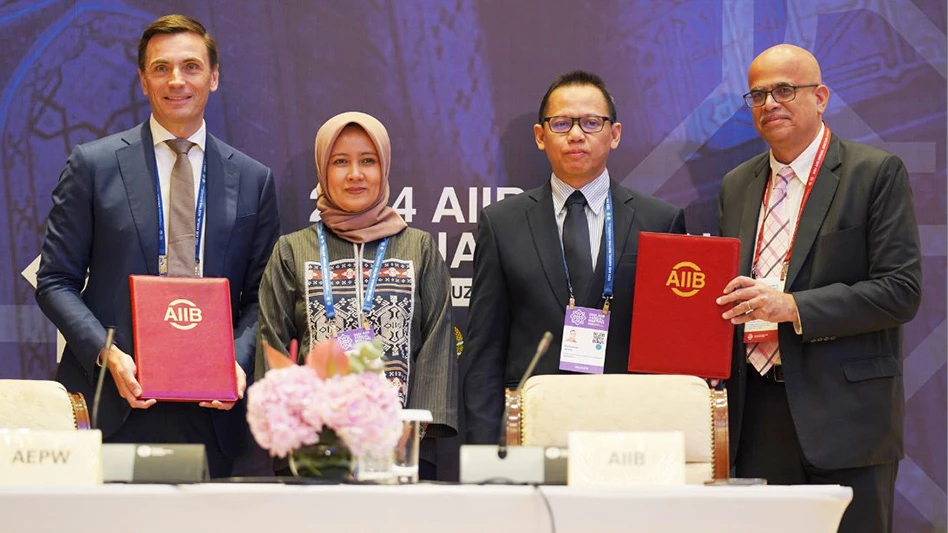
Photo courtesy of the Asian Infrastructure Investment Bank
The Beijing-based Asian Infrastructure Investment Bank (AIIB) and the Singapore-based Alliance to End Plastic Waste (AEPW) have launched a co-financing initiative focused on solid waste management and recycling services in more than 10 cities and districts in Indonesia.
A signing ceremony for a letter of intent was held in Samarkand, Uzbekistan, to solidify a collaborative effort AIIB says will enable AEPW to contribute concessional resources into the solid waste management for sustainable urban development project in Indonesia via AIIB’s project-specific window. AIIB calls AEPW its “inaugural private partner through this specific window.”
“This is a vital step in our shared ambition to forge an impactful partnership during a critical juncture for sustainable development,” says Rajat Misra, AIIB acting vice president for investment. “This partnership will strengthen institutional capacity for solid waste management at both the national and subnational levels.”
AEPW’s investment of $21.5 million “complements the blended finance project financing package in Indonesia, accelerating the shift toward a circular economy that tackles the challenges of mismanaged waste, particularly plastic waste,” AIIB says.
The newly announced funding package includes AIIB’s planned financing of $150 million over the course of the next five years.
The announced co-financing may be complemented with further concessional resources and is in addition to the $2 million project preparation grant from AEPW, and facilitated by AIIB, for best practices on climate, environmental and social standards for developing circular and end-to-end waste management solutions.
Through the project, AIIB says it will strive to provide solid waste management services that are climate-aligned, including recycling-related circular economy principles that can help serve some 9 million Indonesians.
This project will focus on waste management infrastructure, building the capacity of regional organizations and companies and catalyzing community change behavior while addressing livelihood concerns faced by informal sector workers, according to AIIB.
“In a circular economy, products and materials are kept in use for as long as possible through ‘reuse, reduce and recycle’ strategies,” AIIB says.
The Asian Infrastructure Investment Bank is a $100 billion development bank with a mission to finance infrastructure in Asia and beyond, including projects that are “green, technology-enabled and promote regional connectivity.”
The Alliance to End Plastic Waste is a global not-for-profit organization with a mission to end plastic waste in the environment and to advance a circular economy for plastics.
Latest from Recycling Today
- BMW Group, Encory launch 'direct recycling’ of batteries
- Loom Carbon, RTI International partner to scale textile recycling technology
- Goodwill Industries of West Michigan, American Glass Mosaics partner to divert glass from landfill
- CARI forms federal advocacy partnership
- Monthly packaging papers shipments down in November
- STEEL Act aims to enhance trade enforcement to prevent dumping of steel in the US
- San Francisco schools introduce compostable lunch trays
- Aduro graduates from Shell GameChanger program





